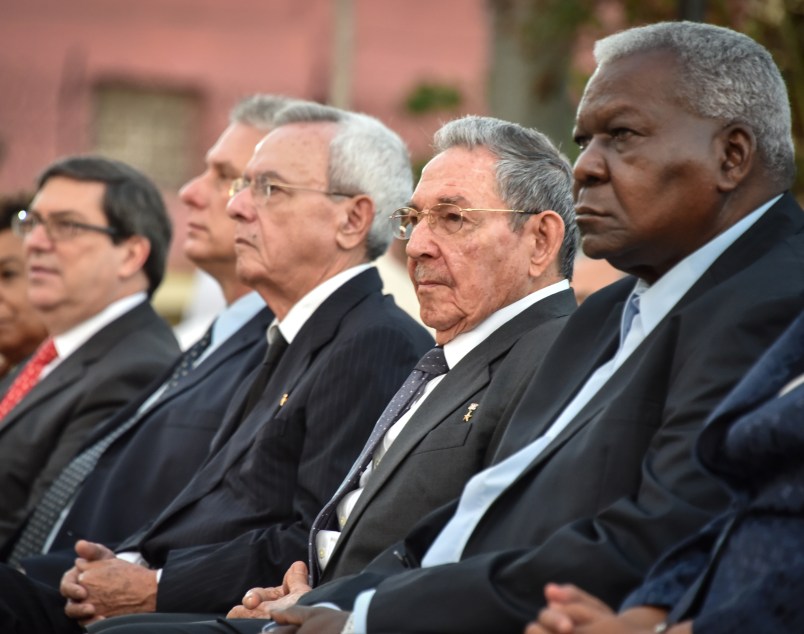All together, the symptoms are similar to the brain dysfunction seen with concussions, concluded a team of specialists from the University of Pennsylvania who tested 21 of the 24 embassy personnel thought to be affected.
Whatever the cause, the Havana patients “experienced persisting disability of a significant nature,” the Penn team concluded.
Cuba has insisted there were no attacks.
The Journal of the American Medical Association released the report late Wednesday, although key findings were first disclosed by The Associated Press in December.
The mystery began in late 2016 when U.S. embassy personnel began seeking medical care for hearing loss and ear-ringing that they linked to weird noises or vibrations — initially leading investigators to suspect “sonic attacks.” Now, officials are carefully avoiding that term, as doctors involved in the probe wonder whether the sounds were a byproduct of something else that might help explain the full symptom list: memory problems, impaired concentration, irritability, balance problems and dizziness.
Wednesday’s report makes clear that the findings are preliminary, essentially a listing of symptoms and tests. And important complications remain, including that there’s no information to compare the patients’ brain or hearing health before they went to Cuba.
“Before reaching any definitive conclusions, additional evidence must be obtained and rigorously and objectively evaluated,” JAMA associated editor Dr. Christopher Muth cautioned in an accompanying editorial. He noted that many of the symptoms overlap with a list of other neurologic illnesses.
“It really looks like concussion without the history of head trauma,” report co-author Dr. Douglas Smith of Penn’s Center for Brain Injury and Repair, said in a podcast provided by JAMA.
He said that sound, heard by 18 of the 21 patients, couldn’t be to blame: “There is no known mechanism for audible sound to injure the brain. We have to suspect that it’s a consequence of something else.”
The mysterious case has sent U.S.-Cuba relations plummeting from what had been a high point when the two countries, estranged for a half-century, restored relations under President Barack Obama in 2015.
The new report outlined the battery of testing the patients underwent, including some findings that can’t be even unconsciously altered, bolstering the doctors’ belief that the symptoms were not mass hysteria. At least six people had a change in work performance noted by supervisors and colleagues, the JAMA report found.
Viruses or chemical exposures are unlikely, Smith’s team wrote, although they couldn’t be “systematically excluded.”
Advanced MRI scans spotted “a few” changes in what are called white matter tracts of the brain in some patients, with three showing more than would be expected for their age, the report said. But the authors acknowledged those abnormalities could be due to something earlier in life.
For many the symptoms lasted months, and doctors designed customized rehabilitation therapy that did seem to help.
Dr. S. Andrew Josephson, neurology chairman at the University of California, San Francisco, who wasn’t involved in the study, called the work “a really important step” because it carefully describes the medical findings and shows they are remarkably similar across the group of patients.
“It moves you closer to understanding what the possible causes may be,” he said.
The State Department, which wasn’t involved in writing the article but reviewed it to ensure it did not contain any classified information, issued a health alert Wednesday citing the article “in order to inform U.S. citizens and medical providers.”
“We encourage private U.S. citizens who have traveled to Cuba and are concerned about their symptoms to share this article with their doctor,” the State Department said.
____
Associated Press Science Writer Malcolm Ritter contributed to this story from New York.







I truly suspect the Russians are somehow behind this.
This should be the default frame of mind as long as Putin is in power.
What I don’t understand is this: If this is a deliberate act by a foreign state actor (which is my suspicion), why only in Havana? If Russia has figured out a way to affect our diplomats with concussion like symptoms, why wouldn’t they roll it out in a number of places where it could have a detrimental effect on the work the FSOs are doing?
I can see Havana as a place where it’s easy to keep things hidden, but surely there are other places we’d see this happening. Perhaps even places that don’t immediately remind people of a long history of Russian entanglement like Cuba does.
Hmmm…I had a concussion and about a year later I had a focal seizure-like event that started with a loud, piercing ringing in my ear. The ringing never went away.
Maybe this is a test.